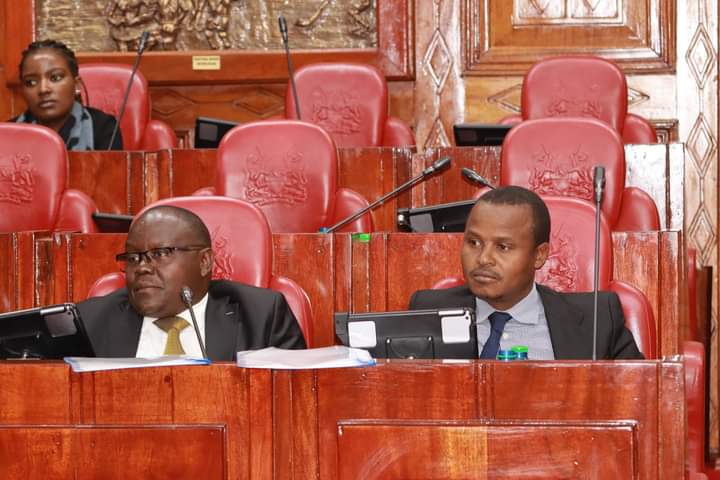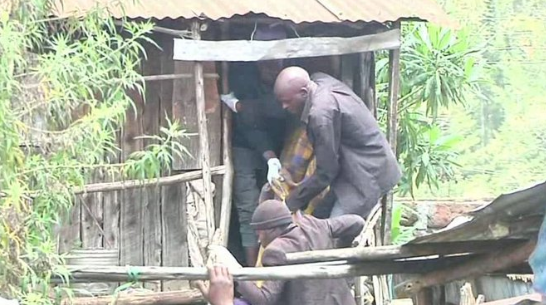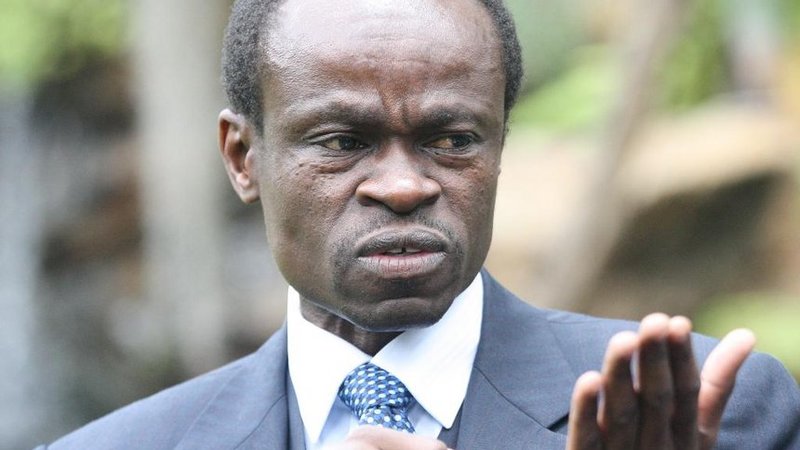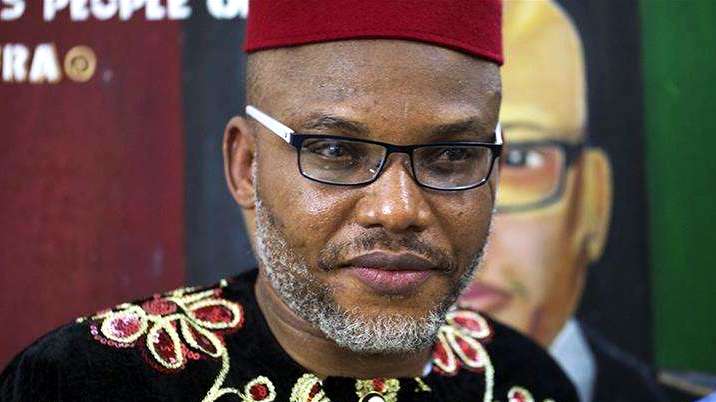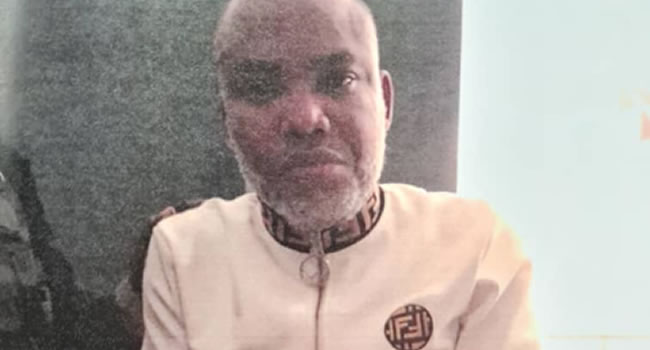At first, he appeared to be the most unlikely candidate for the task. After his fifth attempt at running for Kenya’s presidency, surely Raila Odinga is finished, done. The only thing left perhaps was how to update his memoirs. But who needs nuggets from a loser who couldn’t put them to use himself?
These were the thoughts that weighed on our minds as we thought of inviting former Kenyan Prime Minister and freshly defeated candidate of the Orange Democratic Movement, Raila Odinga, to the 14th edition of the LEADERSHIP annual conference and awards.
It’s also interesting that since he narrowly lost last year’s presidential election to William Ruto who framed the campaign as an epic battle of “hustler vs. dynasty”, Odinga has received several invitations to speak at major international forums in the US and Europe. There must be a lesson or two about his defeat that keeps the world wanting to hear from his experience.
But the attraction for LEADERSHIP was even more. On the eve of Nigeria’s general election, with its attendant anxieties, tensions and concerns that violence could mar the outcome – or worse, upend it altogether – who else is more qualified to share valuable experience than a man who was a presidential candidate in the Kenyan general election in 2007, which claimed over 1,200 lives and another election in 2017 which left at least 37 dead, many more wounded and thousands fleeing their homes?
Only last October, former two-term Kenyan President and also contestant in these two elections, Uhuru Kenyatta, was the guest of the Nigerian government at a ministerial performance retreat in Abuja.
Unlike when he came on a state visit eight years ago, Kenyatta made no public statements this time, leaving a heavy cloud of cynicism in some circles that the man who betrayed Odinga and paved the way for Ruto’s victory, was perhaps delighted to sneak into Abuja, Nigeria’s capital, like a thief in the night.
The press couldn’t get Kenyatta to clear the air. So, we thought it would be a good idea to invite Odinga, described as one of the most consequential Kenyan politicians in the last three decades by Professor Femi Badejo in his notable biography, “Raila Odinga: An Enigma in Kenyan Politics”, to shed some light on the cauldron of Kenyan elections.
I’m glad we did. My two previous articles on Kenya after the October presidential elections leaned more towards Ruto, because I felt strongly that the Odinga and Kenyatta dynasties have run their course and that perhaps Kenyan politics deserved a breath of fresh air.
But inviting Odinga carried its own risks, too. Just one day before he arrived in Abuja, he held a huge rally in Jacaranda, Nairobi, where he announced there would be a series of rallies against Ruto’s government.
Odinga insisted that the government was illegitimate, vowed that he would not be silenced, and likened Ruto’s government to the biblical tax collector, Zacchaeus, notorious for inflicting punitive taxes on the people. And then the next day, he got on the plane and headed to Abuja, with a six-member delegation comprising a professor and a senator, to speak on “Credible Elections and an Economy in Transition”.
If the topic sounded just right for Nigeria ahead of an election foreshadowed by deadly attacks on voting infrastructure, widespread displacement of populations as a result of banditry, and economic chaos; it presented different optics for Nigeria’s diplomatic relations with Kenya.
Giving Odinga, the leader of the largest opposition party, a microphone after his Jacaranda rally, was like providing a foreign staging post for attacks on the new government in Nairobi, still struggling. It could be seen as lending the “enemy” a hand.
But it doesn’t matter. Part of why Africa has experienced five unconstitutional changes in government in two years, with West Africa as the epicentre, has been because of shambolic management of elections and political transitions, among other things.
The continent must grow beyond the rituals of holding periodic elections, which are increasingly trigger points for violent changes in governments. Africa has to find a way to make politics work for a far greater number of citizens who are currently either induced or indifferent spectators in their own game. A good place to start would be a robust opposition. That is why it made sense to hear Odinga out. And he didn’t disappoint.
As we waited for him to join us at the welcome dinner in Transcorp Hilton on Monday night, I wondered what he was going to say. The Secretary to the Government of the Federation, Mr. Boss Mustapha, was present as were representatives of the Kenyan High Commission, and a crème of professionals and business people.
Just a few days earlier a friend had shared a viral video of Odinga with me where the former prime minister ribbed his audiences with a bitter joke about Nigeria. It was about a Nigerian minister on a visit to Malaysia, who was told by his host that 10 percent of the money for the nice roads in Kuala Lumpur had been diverted to build the palatial house where the Nigerian minister was being hosted.
On the Malays’ return visit, he wanted to know where his Nigerian counterpart got the money to build his own palatial house, especially since the roads he had seen were filled with potholes. The Nigerian minister took his guest to the window, smiled and said, “100 percent of what was supposed to have been used to build the roads was used here (pointing to his palace).”
Yet, if you have read Michela Wrong’s “It’s Our Turn to Eat”, you might forgive Kenyans for making corruption in Nigeria the butt of their jokes. No matter, something told me that out of courtesy, Odinga, a politician who prefaces his speeches with jokes and wisecracks, will as a matter of courtesy, spare Nigeria this time.
When the former prime minister and leader of the Kenyan Orange Democratic Movement finally showed up in the dinner room without airs, no fuss. He wore a simple blue-and-white long-sleeve kaftan top over a white pair of trousers and entered the room like the regular Joe.
In my brief comments before he took the podium, I improvised his Malaysian joke saying that he would find Abuja’s main roads well paved. I added that while I wasn’t sure that a kobo of the money used for the roads found its way into the palatial hotel, I could assure him that his host, LEADERSHIP, can account for the cost of the dinner we were about to have.
He later told guests that the last time he was in Nigeria was in 2007 as a member of the international observers for the general elections that year and recounted how a policeman who had flagged down his car insisted that he looked every inch a Nigerian and admonished him for flouting the restriction order.
And then, he spoke about the Kenyan election. He said new evidence from the server which the Supreme Court had denied access during the post-election legal dispute, showed that over two million votes which could have given him a clear edge over Ruto were suppressed.
“How can anyone live with such injustice?” he asked. At that moment I surveyed the room and locked eyes with the representative of the Kenyan ambassador. His face was expressionless.
Odinga wasn’t done. He said he would not be silenced and that he didn’t think it was too much not just to ask for justice to be done, but for it to be seen to be done and for the will of the Kenya people to find true expression.
The old war horse that he is, the next day, the main conference day, he deployed a tactical manoeuvre. Of course, he expressed concern about more elections and yet less credible outcomes, about state capture of election management bodies, and the use of voting machines to rig, Odinga left the heavy, pointed lifting to his cohort, Akau Mutua, a Kenyan American professor of Law based in New York.
Speaking off tempore, Mutua hammered the Kenyan Supreme Court for obstructing access to vital evidence and for its complicity in perverting the course of justice. It’s only a matter of time, he said, before the shenanigans would unravel. As Mutua said that the hall erupted in applause and I spotted Odinga smiling.
“So, what are you going to do about the newly discovered two million votes”, I asked him later that day in his hotel.
“You wait and see”, he replied. “We’re building a movement that will hold the system to account for its injustice. How can there be another election until this matter is resolved?”
At this point, I remembered what his father, Jaramogi Oginga Odinga, might have said of Kenya: “It’s not yet uhuru!”
Ishiekwene is Editor-In-Chief of LEADERSHIP
